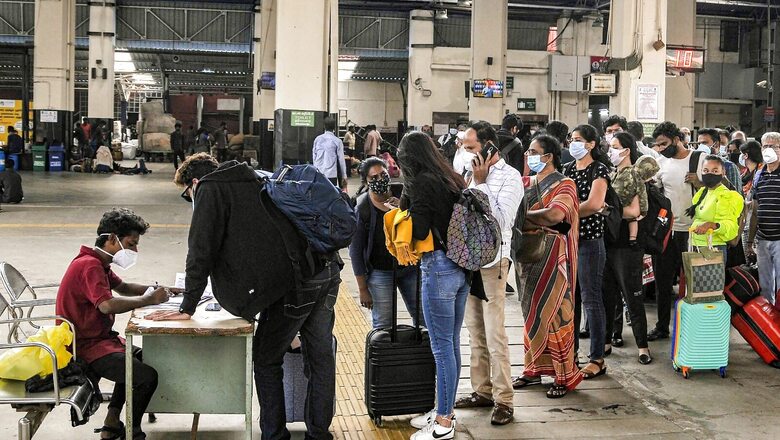
views
India has detected 38 cases of the emergent Omicron variant of the coronavirus and so far, all have shown mild symptoms. The government stated that there was no immediate plan to authorise vaccine boosters. As of now, the Omicron variant has been found in 63 countries and will surpass Delta in spreading speed, the World Health Organization (WHO) has said.
Amid Omicron fear, vaccine demand and supplies have surged in India once again. Several countries across the world are imposing fresh travel bans, restrictions and making vaccines mandatory. Recently, in order to curb the spread of the new variant, the United Kingdom has announced ambitious plans for all adults in England to receive their Covid booster by the end of the year.
Is Omicron spreading rapidly?
As per World Health Organisation, Omicron appears to have a growth advantage over Delta. “It is spreading faster than the Delta variant in South Africa where Delta circulation was low, but also appears to spread more quickly than the Delta variant in other countries where the incidence of Delta is high, such as in the United Kingdom,” it said.
The reproduction rate of Omicron in Gauteng, where South Africa’s outbreak is currently centred, is over 3, which means that every infected person on average infects three more. Now, cases in South Africa are rising at a near-record pace. On Monday, President Ramaphosa, 69, who is fully vaccinated, contracted the contagion on a day the country recorded a new high of 37,875 new infections, dramatically up from the previous day’s 17,154 new cases.
Are Infections Fatal?
Doctors treating Omicron patients stated that people have complained of fatigue and headaches and little more in contrast to racing pulse rates and respiratory problems in those infected with the Delta variant. South Africa’s three biggest private hospital operators say cases are much milder than in earlier waves. There are few people on oxygen or ventilators and have reported a slight uptick in deaths.
Are Vaccines Working Against Omicron?
Research has shown Omicron is able to largely, but not completely, evade the antibodies generated in response to the inoculation, a study by Pfizer has also backed it. The Guardian reported that three doses of the Pfizer/BioNTech vaccine are likely to protect against infection with the Omicron variant but two doses may not, according to laboratory data that will increase pressure to speed up booster programmes. Tests using antibodies in blood samples have given some of the first insights into how far Omicron escapes immunity, showing a stark drop-off in the predicted protection against infection or any type of disease for people who have had two doses. The findings suggest that, for Omicron, Pfizer/BioNTech should now be viewed as a “three-dose vaccine”.
Across the world, the vaccine makers said they would continue “at full speed” with plans to develop an updated Omicron-based vaccine by March 2022 if needed.
Does it affect children differently?
Initial hospital admissions in South Africa saw a higher number of children under the age of 5 than previously. However, most only stay in hospital for a short time, and according to South African health minister Joe Phaahla, there are no reports of respiratory complications.
Read all the Latest India News here




















Comments
0 comment